MercoPress. South Atlantic News Agency
Tag: Buenos Aires Grains Exchange
-
Wednesday, July 27th 2022 - 09:40 UTC
Argentine Central Bank creates “agrodollar” to boost export liquidations

Argentina's monetary authorities Tuesday announced the creation of the “agrodollar,” a special exchange rate for agrifood exporters to liquidate their revenues through formal channels at an exchange rate closer to the parallel (“blue”) quotation.
-
Monday, February 3rd 2020 - 07:26 UTC
Argentina's soybean crop forecasts increase to 53.1 million tons on favorable moisture conditions

Argentina's soybean harvest for the 2019/20 season is forecast at 53.1 million tons, the Buenos Aires grains exchange said last week, an improvement from a prediction it made towards the end of last year.
-
Monday, April 8th 2019 - 10:40 UTC
Argentine soy harvest with “excellent” yields expected to reach 53 million tons

Argentina's soy harvest has progressed at a brisk pace over recent days, showing “excellent” yields that could push the crop higher than the currently forecast 53 million tons, the Buenos Aires Grains Exchange said in a report last week.
-
Wednesday, December 19th 2018 - 08:43 UTC
Abundant rains in Argentina's soy belt help expectations of a good harvest
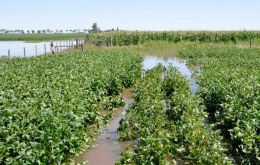
Rainstorms are sweeping Argentina’s soy belt, building soil moisture needed to guarantee good yields when crops blossom in February and providing some cushion for China to buy should its trade war with the United States continue to limit U.S. supplies.
-
Wednesday, October 24th 2018 - 07:15 UTC
Argentina reports trade surplus in September, the first since December 2016

Argentina had a trade surplus of US$ 314 million in September, official statistics agency Indec said on Tuesday, the first since December 2016 and an early sign the devaluation of the peso currency has benefited the country’s exporters.
-
Friday, October 12th 2018 - 08:43 UTC
Despite poor weather Argentina expects a 2018/19 wheat crop of 19 million tons
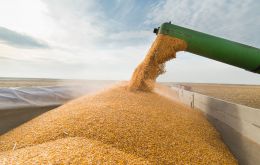
Frost and a lack of rain could scale back Argentina's wheat crop for the 2018-19 season, which is currently seen at a record 19.7 million tons, the Buenos Aires Grains Exchange said on Thursday.
-
Thursday, August 9th 2018 - 07:02 UTC
Argentina expecting a bumper 2018/19 wheat crop of some 20m tons
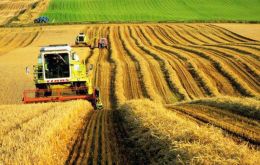
Argentine farmers are finishing this year's wheat sowing, helped by moist soils and cold weather that is prolonging the vegetative stage of crops, raising hopes of high yields and a record harvest, growers and analysts said on Wednesday. Cold Southern Hemisphere winter weather allows seedlings to grow more sprigs per plant. Harvesting starts in November.
-
Friday, June 29th 2018 - 05:25 UTC
“An unforgettable year for soybeans in Argentina”, yields and harvested area at its lowest

Argentine soy yields and harvesting area have been chopped by drought to their lowest levels since the 2008/09 season, analysts said on Thursday, citing the effect of a four-month dry spell that suddenly gave way to floods in April.
-
Wednesday, July 24th 2013 - 07:12 UTC
Argentina trade surplus up 26.9% in June as grains and oilseed exports get moving
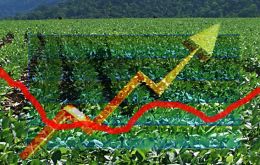
Argentina's June trade surplus grew by 26.9% to 1.16 billion dollars from 910 million in the same month last year, but the six month period was down 26%, the government's national statistics institute Indec said on Tuesday.
-
Thursday, December 27th 2012 - 06:01 UTC
Xmas rainstorms and soggy soil delaying soy and corn planting in Argentina
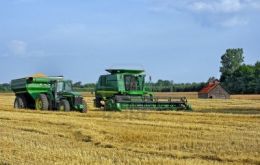
Christmas rainstorms across Argentina further delayed soy and corn planting, keeping markets guessing about whether the grains powerhouse can produce enough this season to help bring high-flying global food prices down to earth.
